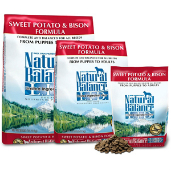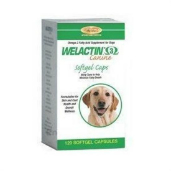Dogs have very specific nutritional needs. These needs must be met for dogs to have enough energy, maintain a healthy coat and skin, fight illness, properly grow and develop, and to be otherwise healthy and happy. Some needs vary depending on a dog's size, age, activity level, and medical conditions. Ask your veterinarian about tailoring your dog's diet to meet her needs. Below are some basic nutrition tips for dogs.

Energy and Body Weight
Energy, quantified in calories, comes from protein, fats, and carbohydrates. While dogs can obtain energy from carbohydrates, their digestive systems are designed to obtain energy primarily from protein and fats. Daily caloric intake is the most variable factor of a dog's nutritional needs. Small, inactive dogs may need around 300 calories per day, while a 90-pound inactive dog needs closer to 1,500. Active dogs often need at least 30 percent more calories than their inactive counterparts. Pregnant bitches have higher calorie requirements than other dogs.
Providing an appropriate number of calories helps prevent unhealthy weight gain. Dogs that eat more calories than they use gain weight, and being overweight carries significant health risks in dogs. More than 1/3 of dogs over 1 year old in the U.S. are overweight. Consult your veterinarian about how many calories your dog should consume each day.
"Your pet's nutritional needs will vary depending on a their size, age, activity level, and medical conditions."
Protein
Protein is made up of amino acids. There are 10 essential amino acids in a dog's diet, meaning they must be obtained through diet because the body doesn't naturally produce them. Meat is the primary source of protein for dogs, containing all their essential amino acids. Dogs can survive on a vegetarian diet, but it must be carefully designed to provide enough protein and all 10 of the essential amino acids. About 18 percent of your dog's daily calories should come from protein.

Fats
Fats and essential fatty acids are crucial to a dog's diet. Fatty acids, such as omega-3 and omega-6 fatty acids, are necessary for skin and coat health, cell structure, vision, cognitive function, and a variety of biological processes. Fats come from animal and plant sources. Aim to provide about 10 percent of your dog's daily calories from fats. Monitor fat intake closely, as fats are the most calorie-dense nutrients, making it easy for a dog to overeat with high-fat foods. Ask your veterinarian if an essential fatty acid supplement might be of benefit to your dog.
Vitamins and Minerals
Twelve minerals are considered essential for dogs: calcium, chlorine, copper, iodine, iron, magnesium, manganese, phosphorous, potassium, selenium, sodium, and zinc. The B-complex vitamins and vitamin K are also essential for dogs. Make sure your dog's food is fortified with these nutrients. Ask your veterinarian if your dog would benefit from a dietary supplement containing any of these vitamins or minerals.
Sources
http://pets.webmd.com/features/pet-nutrition
http://dels.nas.edu/resources/static-assets/materials-based-on-reports/booklets/dog_nutrition_final.pdf
The above is provided for information purposes only and should not be used for the diagnosis or treatment of any condition.
This information does not cover all possible variables, conditions, reactions, or risks relating to any topic, medication, or product and should not
be considered complete. Certain products or medications may have risks and you should always consult your local veterinarian concerning the treatment of
your pet. Any trademarks are the property of their respective owners.